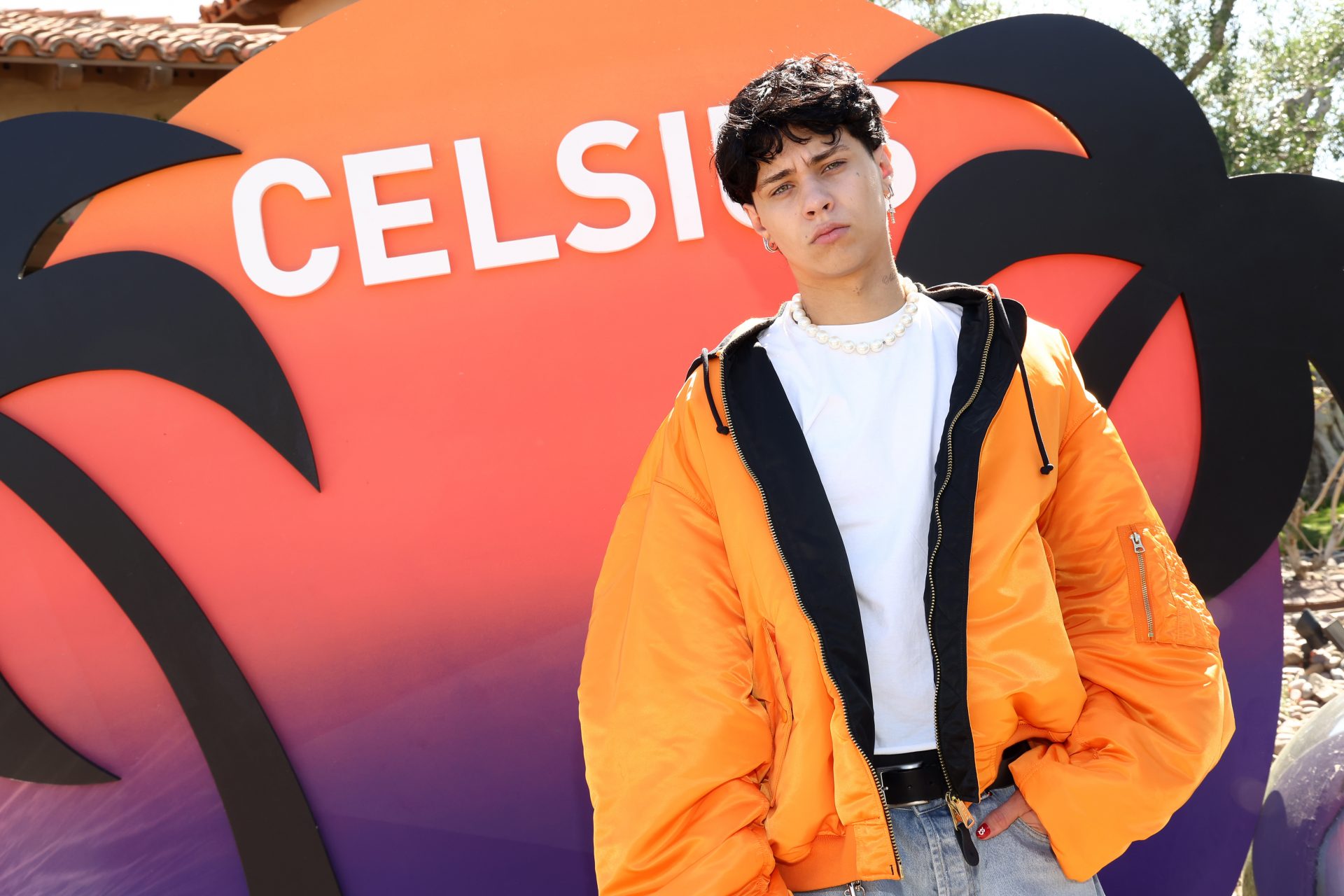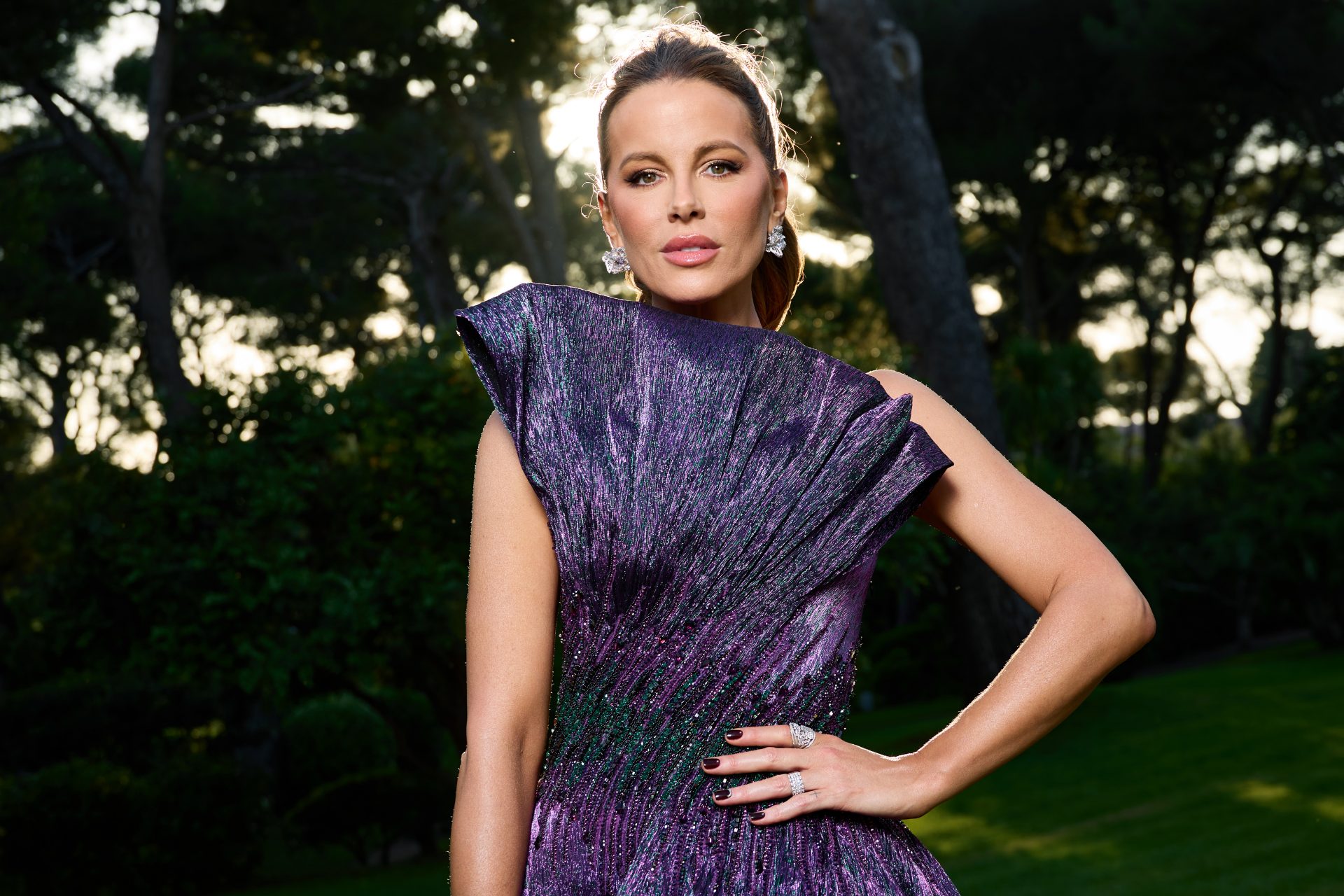Weird contestants in the history of Eurovision
Over the course of 67 editions, the occasional weird act has appeared at the Eurovision Song Contest You know, the kind of performance that makes you wonder: who signed off on that?
As you will see, sometimes eccentric shows thrive in the Song Contest. And sometimes they don't. Let's have a look at some of the most eccentric performances in Eurovision history.
A powerful antiwar song that to many also sounded - and looked like! - a carnivalesque party anthem. At the end of the song, the entire band dropped their coats and showed their underwear while singing about 'psychopaths,' flanked by a dangerous-looking man with two cartoonish rockets in his arms. Peace on Earth!
Image: Chloe Hashemi, EBU / Eurovision
The seventies were wild, that's a thing we have to admit. So maybe it wasn't surprising that they produced the act 'Dschingis Khan' of a West-German group with he same name. While dancing exuberantly, and the band member dressed as Dzhengis Khan making cheerful pirouettes, the group sang about wild nights in a fictional Mongolian kingdom.
And then came the eighties. Funnily enough, Belgian act 'Telex' is exactly what you'd expect from an early eighties band. They brought a synthesizer song with very few lyrics - which is a bit odd for a SONG contest. But the theme was spot on: "Eurovision." Fun fact: the band was honestly trying to get to last place in the final ranking, but Morocco and Finland beat them to it.
We jump to the 1990s, when eccentricity became a true backbone of the musical festival. Israel's entry for 1998 was remarkable and positively so. A transsexual artist with a proud and colourful show paved the way for other unorthodox acts. Dana International not only took victory for Israel in 1998, but she also breathed new life into the Eurovision Song Contest. Eurovision went from a stuffy format (with much of the same) to an inclusive and fun festival that is watched all over the world.
Guildo Horn was an idol among German youth and dared to enter the Song Contest dressed as a clown without makeup. When the song ended, he jumped off the stage and kissed everyone he could reach. The song was 'Guildo hat euch lieb' ('Guildo loves you all') after all. It got him as far as to seventh place.
Stefan Raab wanted to follow in the footsteps of Guildo Horn and showed up with a golden outfit, a nod to disco styling, and a song that was catchier than anyone would ever admit. In fact, he would end up in fifth place thanks to one of the best performances of the year. Weird but worthy.
Over the course of two years, Israel went from Dana International to one of its worst acts ever: Ping Pong. Their 'Sameyakj' was a stale Eurodance song that wasn't catchy. However, everyone forgot about the song once the artists started to behave as if they were the last people remaining on a late night at the disco. They came second to last with 7 points.
Jemini have the dubious honour of being one of the few performances in Eurovision history to take home zero points from the Festival. Like Israel's PingPong's, theirs was a misunderstood dance song with a dreadful performance. It seemed like they had put it together the night before. Sad.
A Romanian artist dressed up as Dracula, Cezar obviously had to go into this list. His performance was of high vocal quality though, and his 13th place was fair.
For a song about near-extinct animal species, Alf Poier mounted the stage dressed as a little boy with a hat accompanied by two backing singers and three cardboard animals. It was cringe-worthy but still earned him sixth place with 101 points. Impressive.
Lordi had to endure a lot of laughs, jokes and jeers with their Eurovision bid. Dressed as monsters and playing a heavy metal version of 'Hard Rock Hallelujah', the Finns ended up surprising everyone and winning the 2006 Song Contest fair and square. 15 years later, many still remember their Eurovision performance.
Iceland embraced the weirdness in 2006 and sent Silvia Night to Eurovision with 'Congratulations', a song getting ahead of itself and celebrating Iceland's victory in the contest. Even weirder was the call from God the singer received in the middle of her performance. Despite the wishful thinking and divine help, Silvia Night came 13th.
No one will ever forget this performance. Impossible. 'Dancing Lasha Tumbai' was the name of the song performed by this Ukrainian comedian and actor. The lyrics apparently sent a political message to his Russian neighbours, but many were too distracted by the silver looks and wild dance moves to notice. This is one of those performances that should have won, let's face it. Verda Serdyuchka came in second.
It never ceases to surprise that the UK, with its legendary and rich musical tradition, can sometimes send such odd performers to the Song Contest. 'Flying the Flag' was memorable thanks to the choreography and pilot / steward(ess) outfits, but they couldn't make any more of Scooch's result than a second to last place.
Beyond the fact that 'Leto Svet' was a song with disjointed and nonsensical lyrics, it should be noted that Kreisiraadio were a comedy trio mostly out to make jokes. However, at Eurovision, poorly understood humour does not work. They came second to last in the semi-final.
Spain does not have a very good relationship with the Song Contest. It's not like, say, soccer. In 2008 the country sent Rodolfo Chikilicuatre onto the stage with a toy guitar. His 'Chiki-Chiki' finished in 16th place, which was - it must be said - one of Spain's best results in the 21st century.
Laka was a street musician who entered the Eurovision Song Contest with 'Pokusaj', his own song about love. So far, so good. But unfortunately, someone decided it was appropriate to dress him up as a pirate and have his companions dressed as brides. They didn't even suffer that much from it, as Laka ended up in tenth place.
A turkey. Ireland, why? Well, for laughs, obviously. And if you're going to take Eurovision for a laugh, go big like Ireland. The song was called 'Irlande Douze Pointes', by the way.
The aim of this group with Romani origin was to vindicate the rights of the gypsy people. A good plan, but unfortunately the execution was lacking. Their singer was disguised as superhero 'Super Gypsy,' which caused a lot of laughs but no ticket to the final for the noisy performers.
Imagine your grandmother's book club decides to go to the Eurovision Song Contest, dressed in traditional costumes, and gives a performance somewhere between 'X-Factor' and the local Christmas festival. That's what happened with the Russian grandmothers from Buranovo. The result? Second place, oh yes!
San Marino never disappoints. In 2012, Valentina Monetta brought us the 'Social Network Song', a piece of art discussing Facebook without mentioning Facebook, as brand names are forbidden in the contest. Her performance was phenomenal, but she failed to make it to the final. Mark Zuckerberg did give it a thumbs up though.
'My Slowianie', the song Poland performed in 2014, would have worked as much at a racy adult show as anywhere. The performance went from suggestive to crass when one of the singers started washing clothes in front of the camera while revealing much of her cleavage. Obviously, they got quite far: 14th place.
Eccentricity made to perfection. A beautiful woman with long hair, a gown, and a bushy beard sang the bombastic 'Rise Like a Phoenix', winning her a deserved first place. To this day, Conchita Wurst is a Eurovision icon. And she will remain so for a long time.




































